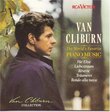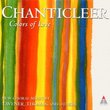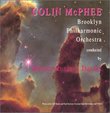| All Artists: Ludwig van Beethoven, Jenö Jandó Title: Beethoven: Piano Sonatas, Vol. 2 Members Wishing: 0 Total Copies: 0 Label: Naxos Release Date: 9/4/1992 Genre: Classical Styles: Forms & Genres, Sonatas, Historical Periods, Classical (c.1770-1830), Romantic (c.1820-1910) Number of Discs: 1 SwapaCD Credits: 1 UPC: 730099505420 |
Search - Ludwig van Beethoven, Jenö Jandó :: Beethoven: Piano Sonatas, Vol. 2
 | Ludwig van Beethoven, Jenö Jandó Beethoven: Piano Sonatas, Vol. 2 Genre: Classical
Beethoven's Farewell Sonata has three movements--departure, absence, and return--that perfectly capture the emotions they express. The first movement had a powerful influence on Mahler's Ninth Symphony, which quotes it lit... more » |
Larger Image |
CD DetailsSynopsis
Amazon.com Beethoven's Farewell Sonata has three movements--departure, absence, and return--that perfectly capture the emotions they express. The first movement had a powerful influence on Mahler's Ninth Symphony, which quotes it literally on several occasions. The Waldstein and Tempest Sonatas are, in many respects, quintessential Beethoven: passionate, turbulent, but always formally perfect. Jeno Jando's survey of Beethoven sonatas on Naxos has been extremely successful--much more so than several other pianists on more expensive, full-priced labels. His second volume isn't just a good deal for the money, it's a good deal, period. --David Hurwitz Similarly Requested CDs
|
CD ReviewsTechnically brilliant and unflamboyant at the same time Leslie Richford | Selsingen, Lower Saxony | 08/28/2004 (4 out of 5 stars) "This recording from April and June 1987 was the one that introduced me to Beethoven's piano sonatas some years hence, and although there may be some "better" versions around, I must confess that this disc has provided me with hours of listening pleasure and still does so. Its strengths are twofold. First, it contains three of the most fascinating pieces of piano music that have ever been written. The "Waldstein" sonata and "Les Adieux" belong to the "You-just-have-to-know-them" category and have been recorded countless times. The "Tempest" (Sonata Nr. 17) is a little more difficult - from the point of view of the listener, that is - but I find it rewards patient re-listenings. Despite its title, the piece is not really "programme music", it just creates an atmosphere or mood reminiscent of Shakespeare's "Tempest", including some rather eery or mysterious largo passages that immediately conjure up the scene on the magic isle without in any way being narrative. Second, there is Jenö Jando's piano playing. Somehow Jando manages to be technically brilliant and unpretentious, unflamboyant at the same time. The result is that it becomes very easy to immerse oneself in Beethoven's music, to analyse it and to enjoy it. To put it in literary terms, Jando is Beethoven's translator, but not his editor, the music's servant and not its master. In an interview published some years ago in a German-language magazine, Jando made it quite clear that this is a deliberate strategy, and it is one that I find convincing.
On the negative side, I have to say that the recorded sound on this CD is, at best, acceptable. I know you can't apply today's standards to 1987 16-bit recordings, but this one is not remarkable for its quality. There is a certain amount of noise around, a kind of digital mist that swirls around and makes the pianissimo passages sound a good deal more mysterious than they were probably intended to be. The left hand often sounds a little muffled, the right hand a little tinny, not enough to spoil the recording but enough to make me wish it had been done just a little better. I must add, however, that I have the "Waldstein" and "Les Adieux" sonatas on other Cds (Rudolf Buchbinder on Warner Classics and Melvyn Tan playing a fortepiano on EMI/Virgin) and the sound there is equally problem-fraught, I guess it's anything but easy to record a piano played with such a huge dynamic range." |

 Track Listings (7) - Disc #1
Track Listings (7) - Disc #1





